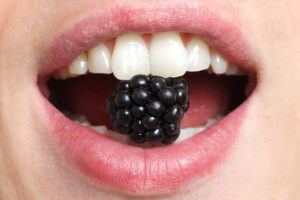
How does sugar affect oral health?
At any given moment, the mouth is full of oral bacteria. Sugar of any variety is a natural food source for bacteria. Since the mouth is a warm and moist environment, it is important to control bacterial growth by reducing sugar intake. Reducing sugar intake can be tricky because packaging will often list sugar derivatives by their chemical names. Ingredients such as fructose or corn syrup react the same way with bacteria as granulated cane sugar. When bacteria sense sugar in the mouth, they become incredibly active and feed on food particles. After feeding, bacteria colonize to form plaque.
Plaque, as well as its hardened form, tartar, coat the teeth and gums. These substances inflame the gums and can contribute to tooth decay. Since sugar is problematic, we recommend that patients consume it in moderation, read labeling on food and drinks, drink plenty of water, and practice proper oral hygiene.
How is acid harmful to teeth and gums?
Like sugar, acid is harmful to oral health. Acid weakens teeth by eroding minerals from tooth enamel. When tooth enamel is week, the interior structure of teeth is exposed to the bacteria that eat through teeth and cause cavities.
Acid is used as a stabilizing ingredient and preservative in many foods—especially sodas. Citrus fruits like lemons and grapefruit are also very acidic. As with sugar, our practice recommends consuming acidic foods in moderation.
To schedule a checkup or cleaning with our experienced dentist, Dr. Kozlow, call our practice today.